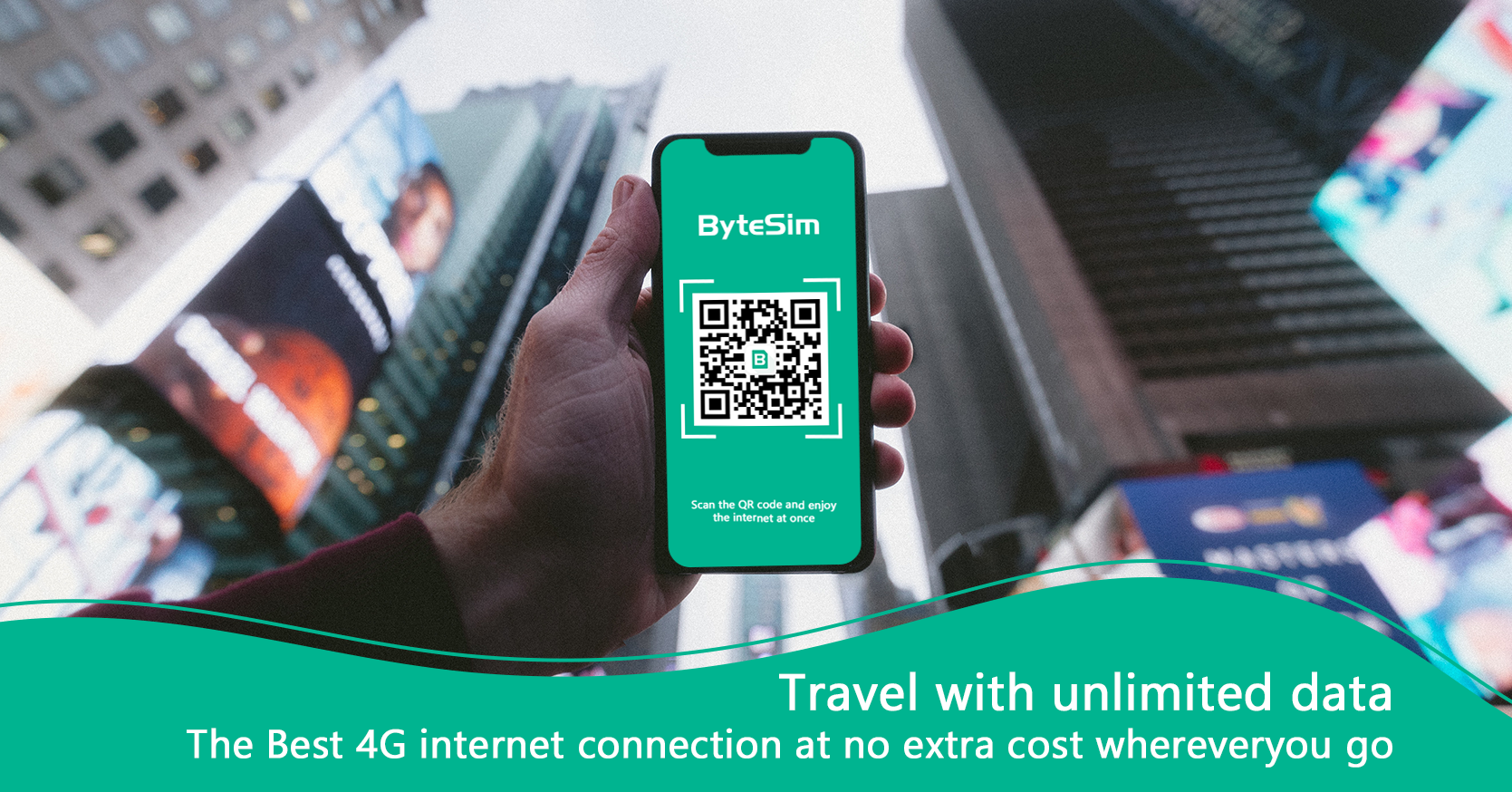Will an eSIM Steal the Electrical Power From My Mobile Device?
Aug 29,2023 | Tim
ESIM? The working mechanism of an eSIM Impact of eSIM on battery consumption Factors influencing battery lifeTips for conserving battery life

Welcome to www.bytesim.com if you NEED an eSIM data plan while traveling around the world. This message is written in the name of ByteSIM.
Ad time over, let's get straight to the point!
ESIM?
eSIM (embedded Subscriber Identity Module) or virtual SIM is a digital SIM card that is inserted into the cellphone originally and it allows you to activate and switch cellular plans without the physical need for a traditional SIM card. Instead, the SIM information is stored in the device's hardware.
The working mechanism of an eSIM
The working mechanism of an eSIM runs according to the following steps:
-
Activation>>
To activate an eSIM, you can either scan a QR code provided by your carrier or manually enter the required information such as the SM-DP+ (Subscription Manager Data Preparation) server address and activation code.
*Make sure you are in a table network coverage before activation
Click* [ *here*** ](https://bytesim.com/blogs/helps) for more details about activating an eSIM on different mobile devices
-
Profile Download>>
Once the eSIM is activated, the device connects to the operator's network and downloads the SIM profile automatically. This profile contains the necessary information for identification and authentication, similar to a physical SIM card.
-
Profile Storage>>
The downloaded SIM profile is securely stored in the device's embedded SIM chip. The eSIM can store multiple SIM profiles, allowing users to switch between cellular plans without needing to physically swap SIM cards.
-
Network Connectivity>>
With the eSIM profile stored, the device can connect to the cellular network authorized by the specific eSIM profile. This enables voice calls, messaging, and data services, just like a traditional SIM card.
-
Remote Management>>
This means that changes or updates to the SIM profile can be pushed to the device over the air, allowing for easy activation, deactivation, or switching of cellular plans via a series of clicks on the screen.
Impact of eSIM on battery consumption
Now, addressing the impact of eSIM on battery consumption, it is important to note that the usage of eSIM technology itself does not inherently increase battery consumption. Battery usage primarily depends on other factors such as network coverage, data usage, device usage patterns, and applications running in the background.
Factors influencing battery life
Here we provide a series of factors that influence the battery life of mobile devices:
-
Network Coverage
Poor network coverage can cause your device to consume more battery power as it constantly searches for a stable connection if you have set it into the automatic searching module.
-
Data Usage
Activities that require data transfer, such as streaming videos or using data-intensive applications, can put a higher load on your device's battery.
-
Device Usage
Frequently using power-intensive features like GPS, camera, or gaming can contribute to faster battery drain.
-
Display Brightness
Keeping the display brightness at higher levels can consume more battery power. Lowering the brightness or using automatic brightness settings can help conserve battery life.
-
Background Apps
Certain applications running in the background or sending push notifications can consume battery power. Closing unused apps or optimizing app settings can minimize their impact on battery life.
-
Battery self-consuming
Over time, smartphone batteries may lose capacity, reducing their overall lifespan and requiring more frequent charging.
Tips for conserving battery life
To extend battery life, you can try the following tips:
-
Set Screen Timeout
Set a shorter screen timeout duration to ensure the display turns off quickly when not in use.
-
Adjust Display Brightness
Lower the brightness level or enable the auto-brightness function to conserve battery power.
-
Optimize App Settings
Disable unnecessary background app refresh or limit certain app notifications to minimize battery usage.
-
Use Wi-Fi Whenever Possible
Connecting to Wi-Fi networks instead of cellular data can help conserve battery life.
-
Enable Battery Saving Mode
Most smartphones offer a battery-saving mode that optimizes device settings to extend battery life when it's running low.
-
Close Unused Apps
Manually close apps running in the background that you are not actively using.
It's important to note that while eSIM technology itself does not significantly impact battery consumption, factors like network coverage, data usage, and device usage patterns contribute more to battery drain. By adopting good battery-saving practices and optimizing your device settings, you can maximize your battery life regardless of whether you're using an eSIM or a physical SIM card.
ByteSIM Core Competencies:
Operating Data and Capabilities Showcase
Data Traffic Per Day 45TB+
Users Totally Per Year 5M+
Global Distributors and Channels 100+
Enterprise Customers 30+




